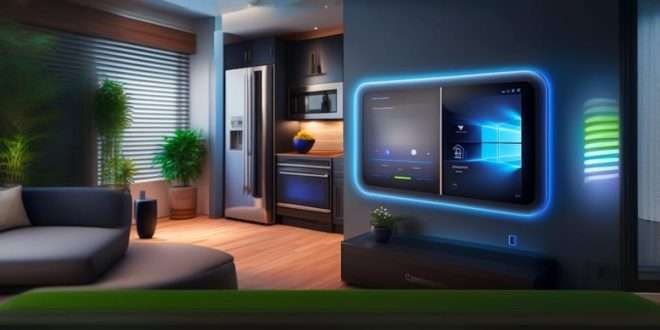Welcome to our comprehensive guide on supercharging your smart home! In this blog, we’ll explore cutting-edge tips and technologies that will take your living space to the next level. From web technology integration to advanced web computing, we’ve got you covered with everything you need to know to create a truly smarter home. Let’s dive in!
Understanding Web Technology for Smart Homes
To achieve a truly smart home, it’s essential to grasp the fundamentals of web technology. Web technologies power the interconnected devices that make up your smart home ecosystem. From web development technologies to cloud-based solutions, understanding the underlying technology will enable you to harness its full potential.
Web technology is the backbone of your smart home, allowing seamless communication between various devices. It enables remote control, data sharing, and automation. By familiarizing yourself with the web technologies that drive smart homes, you can make more informed decisions when selecting devices and systems for your living space.
Exploring Web Development Technologies for Smart Homes
Web development technologies play a crucial role in creating user-friendly interfaces and experiences in smart homes. From intuitive mobile apps to responsive web portals, these technologies are the bridge between you and your smart devices.
Key web development technologies for smart homes include HTML5, CSS3, JavaScript, and RESTful APIs. These technologies enable developers to build interactive interfaces, integrate data from various sources, and ensure smooth communication between devices.
The Impressive Array of Web Technologies at Your Disposal
When it comes to smart homes, the list of web technologies can seem overwhelming. Let’s break down some of the essential ones:
Internet of Things (IoT):
The IoT connects everyday devices to the internet, allowing them to communicate and share data. This is the foundation of any smart home setup.
Artificial Intelligence (AI):
AI powers voice assistants and smart algorithms that learn your preferences and automate tasks, making your home smarter and more efficient.
Cloud Computing:
Cloud-based solutions store and process data, enabling remote access and device management from anywhere in the world.
Zigbee and Z-Wave:
These wireless communication protocols facilitate seamless connectivity between smart devices, reducing interference and enhancing reliability.
Supercharging Your Home with Web Computing
Web computing takes smart homes to new heights, as it leverages the processing power of remote servers and cloud platforms. By offloading computation to the cloud, your smart devices can perform complex tasks more efficiently. With web computing, your smart home can process large amounts of data in real-time, providing quicker responses and enhancing overall performance. From smart security cameras analyzing video feeds to AI-powered voice assistants responding to natural language queries, web computing unlocks a world of possibilities for your living space.
Web Hosting for Smart Home Applications
Web hosting is a critical aspect of integrating web technology into your smart home. Hosting platforms provide the infrastructure needed to run web applications that control and monitor your smart devices. Opt for a reliable and secure web hosting service that ensures minimal downtime and data protection. The right hosting solution will support the seamless operation of your smart home applications, ensuring you can always access and manage your devices without interruption.
The Power of Cloud-Based Solutions
Cloud-based services offer unparalleled benefits for your smart home setup. By storing data and applications in the cloud, you gain the ability to access and control your devices from anywhere with an internet connection. Cloud solutions also enable easy scalability, allowing you to add new devices and expand your smart home ecosystem effortlessly. Moreover, they provide regular software updates, enhancing security and adding new features to your smart devices.
Commonly Asked Questions
Q1: What is the most crucial web technology for a smart home?
A1: The Internet of Things (IoT) is the backbone of any smart home, enabling devices to connect and communicate over the internet.
Q2: How can web development technologies enhance my smart home experience?
A2: Web development technologies create user-friendly interfaces and facilitate smooth communication between you and your smart devices.
Q3: Is web computing necessary for a smart home setup?
A3: Web computing offloads computation to the cloud, providing faster response times and more efficient data processing for your smart devices.
Q4: What are the advantages of cloud-based solutions in smart homes?
A4: Cloud solutions offer remote access, data storage, and seamless device management from anywhere, along with regular updates and enhanced security.
Q5: Which wireless communication protocols are commonly used in smart homes?
A5: Zigbee and Z-Wave are popular wireless communication protocols that ensure reliable connectivity between smart devices.
Final Words
Transforming your home into a smart living space is an exciting journey filled with possibilities. By understanding web technology, web development, and web computing, you can unlock the full potential of your smart devices. Embrace the power of cloud-based solutions and witness the remarkable transformation of your living space. With the right blend of innovation and technology, you can create a smarter, more efficient, and enjoyable home environment that adapts to your needs effortlessly.
 webfily
webfily



